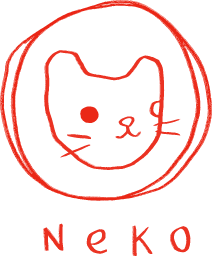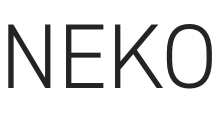The currency of “Trust” in the music industry.
What to look for when joining a creative project.
Building a career in the music industry is not easy, not for the ones who want to be on stage, nor for those behind it. My journey began when a few friends asked me to be part of a music magazine and a small communication agency in Cuba. Both projects started almost at the same time. We noticed gaps in the creative industries in Cuba and we decided to go for it and do our best to tackle them. Challenging endeavours, I have to say, but ultimately they were invaluable. I had the most amazing mentors and discovered that my path was most definitely linked to the music industry. Then I moved to the UK to complete my master's degree and found myself in a new country, in the middle of a world pandemic, with no idea how to navigate my studies, build a network, or work on projects that were going to help me learn more and not give away my skills and knowledge for free. I am sure many of us are trying to figure out if there is a “right” way of approaching this.
When joining a new creative project, I always struggle with navigating uncertainty and deciding whether to take a leap of faith. I question if the project would be worth it, how I can grow from it and who I should trust. I often try to evaluate whether it is worth it to be part of a project that is exciting but vague, which is often the case with creative projects and programmes. There are no right or wrong answers here. Such scenarios are very subjective and dependent on your circumstances, but I will share my way of evaluating the tradeoffs between my skills, needs and expectations and those of my potential creative partners.
As an example for my process, I will use the NEKO18 programme, which I completed in December 2021. NEKO18 is a programme for 21-30 year olds, who are building careers in the music industry. The programme is spread across 3 months, during which we have 4 weeks of intense knowledge sharing sessions which run for 5 hours every day. In addition to that, we had to be available for three full-day weekend retreats. The demand for our time, energy and participation was serious, in return myself and the other participants were offered a wealth of knowledge and mentoring from industry professionals, creative retreats and a trusted network. You can find a proper overview of the programme on Neko18.
After being offered a place on the programme I was excited and terrified at the same time. I’m a woman, in my late 20s, Cuban and had lived in the UK for less than a year. I had over 4 years of experience working in the music industry but not in the UK. While the offer was great industry validation, I felt nervous and insecure, wondering whether to join or not. I was asked to invest time, resources and a great deal of my own talent and expertise into a programme that had no immediate results while working with people I didn’t know.
Here’s what I focused on to decide whether to join the programme or not. I think the tips below can be applied to any other creative project, collaboration or programme.
- Pitch
The program had a great pitch- they knew exactly what was important to young creatives and how to communicate it. NEKO was very specific about their demands and what they were providing us with in return. I knew exactly what I could potentially “earn” by being involved. Clarity is important, as well as feeling excited about what’s to come.
- Are they genuinely interested in you?
During the interview stages they were invested in us. They wanted to gather the right group of people and they took the time to get to know us, it wasn’t just one cold interview over Zoom. Always pay attention to their interest in you, if it is not there right from the beginning, you already know a lot.
- Are they willing to meet you in the middle?
Explore the flexibility around timetables and working dynamics between you and your potential collaborator. We are all humans, it is important that we can see there’s another person on the other side of the table or screen. If you can’t trust them with regular human problems, then you know most of what you need by then. They should be willing to meet you in the middle, always.
- Is the focus set on you at the same level as them?
Last but not least, let’s go back to the transaction or the so called trade offs. There’s hierarchy and levels of expertise, there should always be an open negotiation on terms and exchanges. Sometimes, I have felt like I was only working on a project to serve someone else’s purpose and there was nothing for me (money, network, knowledge, skills, etc.), and my needs and aspirations as a creative person were not met.
The programme was incredible, it met my expectations and surprised me along the way. It was a Pilot programme and it needed improvement, the team was aware of this, that’s why they implemented a feedback and evaluation system that allowed us to share how we were feeling every step of the way, and they did their best to accommodate us. I had many questions answered and more clarity on how to navigate the maze that is the music industry. I learned a lot. I found my place in the industry because of NEKO’s Industry Map. I gained more confidence in myself, my skills, my knowledge, in who I was and who I can be, professionally.
Often we feel we have to take all opportunities that come our way regardless of their terms and conditions, because it is the music industry and it is great to work in it. Young professionals are taken advantage of by being asked to give up our time, knowledge and energy, otherwise there are plenty of others who’d be happy to do so, and we end up losing our ground. This has to be challenged. The conversation has already shifted towards more empathy, and empowering voices that have been historically oppressed. We deserve to be recognised and our trust has to be earned, that’s what I keep in mind when embarking on a new creative project- it empowers me and confidence is essential when walking this path.
Now I have a full time position at an international music marketing company. I like to think I got here because of a combination of factors, much of which came from this programme and its people, especially self-confidence and support, lots of support.
Author: Claudia Fernandez
@macha.fd

